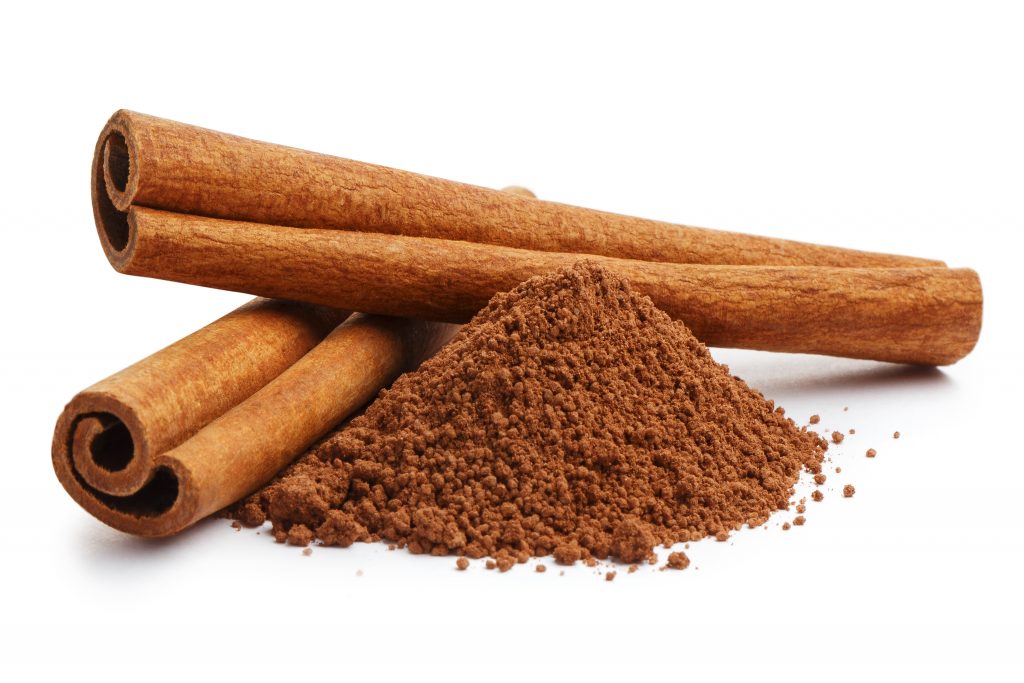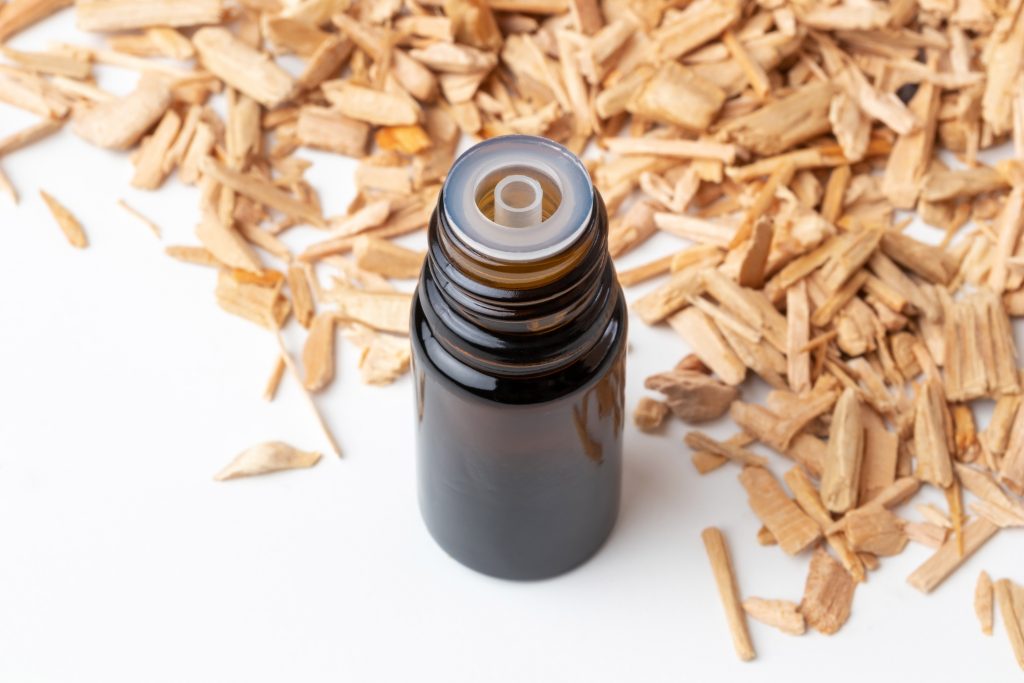Published on September 19, 2020. Last Updated on July 20, 2021.
Cinnamon oil has been used by humans all over the world since ancient times for many health areas. But can it also improve your hair? Many people think this is just superstition. But in fact, scientists are finding new forms of evidence that cinnamon extract can improve the scalp environment so that your hair follicles can thrive and grow hair to a fuller extent.
History of Cinnamon
In ancient Egyptian times, people used cinnamon extract for embalming purposes and to heal different areas of their health due to its antibacterial, antifungal properties. Historians believe that the spice may have been equivalent to gold.

The Therapeutic Constituents of Cinnamon
So why is it that cinnamon can exert healing medicinal properties? The answer lies in certain molecular constituents. These include:
- cinnamaldehyde
- cinnamic acid
- cinnamate
- eugenol
- trans-cinnamaldehyde
- procyanidins
- catechins
- linalool
Researchers have designed studies to understand their effectiveness and their effect on different areas of health, including the hair and scalp.
General Areas of Health That Cinnamon Can Benefit

Cinnamon has been used to help improve many areas of health including:
- inflammation
- heart diseases
- insulin
- diabetes
Through modern experiments and studies, researchers have found support which confirms the therapeutic capabilities of cinnamon that have long been known since ancient times.
How the Essence of Cinnamon Can Make A Difference For Your Hair and Scalp

Cinnamon possesses antifungal, antibacterial and antioxidant properties. These are important for optimizing the scalp tissue environment including the hair follicles. When the follicles are nourished in the right way, they are better able to produce hair growth.
Bacteria, fungus contribute to inflammation. Likewise, free radicals can also exert damage to hair follicles, accelerating their aging processes. All these factors combined undermine the hair growth capacity of these structures.

Research Studies on Cinnamon and Hair Growth
Hair loss is often attributed to genetics, yet many people have yet to realize that microbes are a much bigger contributor than previously believed. Fungus and bacteria can proliferate in the scalp. This causes the immune system to respond through the body’s own defense mechanism to destroy these organisms through inflammatory processes which can cause damage to the hair follicles.
Another major contributor to hair loss are free radical compounds which accelerate the aging processes of the hair follicles which have a negative impact on their ability to produce new hair strands.
Cinnamon oil offers much promise for helping hair follicles overcome the challenges of fungus, bacteria and oxidative damage. However, it should be regarded as more of a facilitating agent not a direct curative treatment. To date, scientists have only found evidence that cinnamon oil can thicken hair and expedite its growth in mice. They have yet to find evidence that it can directly grow hair in humans.
A Study on the Antifungal Activities of Cinnamon Oil
Since ancient times, fungal infections have been the root cause of many health issues. So the ability to treat this central issue holds enormous importance for healing these ailments. Cinnamon carries potent antifungal properties which are now being recognized by the scientific community.
In the scalp, fungus contributes to dandruff, a condition associated with unsightly white flakes. This is caused by the body’s inflammatory reactions to the Malassezia fungus.
Scientists were interested in learning about the antifungal activities of cinnamaldehyde and components from other botanicals such as carvacrol and thyme [1]. They designed an experiment which focused on two fungal strains, candida albicans and Malessezia furfur. While carvacrol and thyme proved successful against candida, cinnamaldehyde performed the best against Malessezia which causes dandruff.
In a second experiment, researchers wanted to learn more about the antifungal activities of cinnamon oil blended with usnic acid in a nanoemulsion against two fungal strains known as candidasis and dermatophytosis. This approach proved to be superior to standard synthetic drugs like fluconazole.
Cinnamon Oil May Increase Blood Circulation to the Scalp
One of the most widely used treatments for pattern baldness in men and women is Minoxidil which is believed to work by dilating the blood vessels. Cinnamon oil can stimulate the scalp to improve blood circulation. Using the rat model, researchers have found that cinnamaldehyde exerts vasodilatory effects which may help improve blood flow to the scalp [2]. This enables hair follicles to perform at their optimum .
The Anti-Inflammatory Properties of Cinnamon Extract
A second property necessary for the health of our hair follicles is the ability to reduce inflammation, which is perpetuated in part by a compound called nitric oxide. One research study showed that cinnamomum from the cinnamon bark can suppress this molecule to inhibit inflammation [3].
Also, the hair follicles experience the progression of aging just like other tissue structures and organs in our bodies. This is accelerated by free radicals which are neutralized by antioxidants which also provide other lesser known benefits such as reducing inflammation and preventing UV damage.
Cinnamon Oil As a Potent Antioxidant
In recent times researchers have recently become aware that cinnamon extract is rich in antioxidants. However, a group of them wanted to know how it compared to other botanicals like rosemary and clove [4]. Thus they designed an experiment to measure amounts of peroxide to measure antioxidant activity. And they found that cinnamon oil significantly outperformed both rosemary and clove oil.
Scientists were also interested in learning more about the antioxidant capabilities of 26 varieties of botanicals used as kitchen spices [5]. They measured phenolic activity as a performance indicator. Cinnamon tested the highest against the free radical compounds they observed, surpassing clove and oregano as the other forerunners.
Can Cinnamon Oil Improve Wound Healing?
Medical experts have long known that wound healing processes can encourage the formation of new hair follicles. Although cinnamon extract cannot heal wounds directly, its antifungal and antibacterial properties can accelerate the wound healing capabilities of skin that has been infected with certain strains of these microorganisms.
In one experiment, researchers topically applied cinnamaldehyde to human subjects with skin wounds who were also infected with a bacteria called Pseudomonas aeruginosa [6]. By destroying this bacteria, these scientists noticed that the rate of wound healing improved significantly.
Cinnamon As a Preservative
The ancients used cinnamon for embalming purposes. This is due to its exceptional antibacterial properties, making it an excellent preservative. Today, these capabilities are still being used to preserve cosmetic products and increase their shelf life.
Cinnamon oil, by itself, cannot improve hair growth. Again, it simply acts as a contributor to a healthier scalp environment which benefits the hair follicles. It’s benefits are best realized when it is part of a thoughtfully formulated natural product which includes the right balance of carefully chosen ingredients. Scientists are continuing to explore the potential of cinnamon extract to benefit human health, including the wellness of our hair follicles and scalp.
Frequently Asked Questions – Cinnamon Oil Extract For the Hair
Will adding more cinnamon to my diet improve my health and hair growth?
As discussed above, the cinnamon spice offers antibacterial, antifungal and antioxidant properties. It is also an antidiabetic. These properties can certainly help the general state of your health which would also then have a positive effect on your hair follicles. But as mentioned, further studies are needed to see if there is a more direct relationship between cinnamon extract and hair growth.
What are the different types of cinnamon bark available commercially and which ones are better for the health of my hair and scalp?
The two main varieties of cinnamon are cinnamomum verum (ceylon), which is very expensive due to its potential botanical properties and cinnamomum cassia, which is cheaper and more widely available in the commercial world. At the moment, scientists don’t have enough evidence to fully realize which variety is better for the hair and scalp.
What other health benefits does cinnamon offer outside hair and scalp wellness?
Besides the hair and scalp, the medicinal properties of cinnamon can also benefit these other areas of health such as the heart, insulin sensitivity, blood sugar levels, neurological well-being. Researchers are even finding that cinnamon may be able to improve the state of cancer and HIV patients.
References
[1] Antifungal activity of selected essential oils cinnamaldehyde and carvacrol against malassezia furfur and candida albicans
Hicham Ferhout, J. Bohatier et. al. Antifungal Activity of Selected Essential Oils, Cinnamaldehyde and Carvacrol against Malassezia furfur and Candida albicans, 1999 , Journal of Essential Oil Research
[2] Xue, Yong-Liang et al. “Vasodilatory effects of cinnamaldehyde and its mechanism of action in the rat aorta.” Vascular health and risk management vol. 7 (2011): 273-80. doi:10.2147/VHRM.S15429
[3] Suppression effect of cinnamamom cassia bark derived component of nitric oxide synthase
Hoi-Seon Lee, Byung-Su Kim et. al. Suppression Effect of Cinnamomum cassia Bark-Derived Component on Nitric Oxide Synthase, 2002, J. Agric. Food Chem., 50, 26, 7700–7703
[4] Antioxidant effect of essential oils of rosemary clove and cinnamon on hazelnut and poppy oils
Özcan, Mehmet & Arslan, Derya. Antioxidant effect of essential oils of rosemary, clove and cinnamon on hazelnut and poppy oils, 2011, Food Chemistry. 129. 171-174.
[5] Antioxidant capacity of 26 spice extracts and characterization of their phenolic constituents
Bin Shan, Yzhong Z Cai, Antioxidant capacity of 26 spice extracts and characterization of their phenolic constituents, 2005, J Agric Food Chem, .Oct 5;53(20):7749-59.
[6] Topical application of cinnamaldehyde promotes faster healing of skin wounds infected with pseudomonas aeruginosa
Ferro TAF, Souza EB, Suarez MAM, et al. Topical Application of Cinnamaldehyde Promotes Faster Healing of Skin Wounds Infected with Pseudomonas aeruginosa. Molecules. 2019;24(8):1627.
Read More
Discover why the amla fruit should be considered in your path towards healthier hair growth
